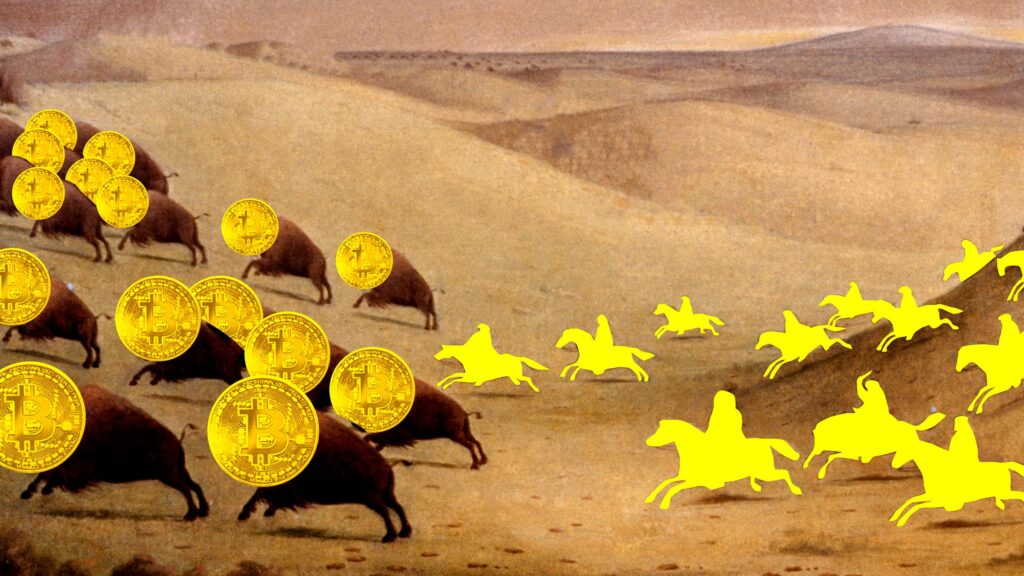When the Ordinals system was first released, it divided bitcoiners. Inscriptions were a near-instant hit, but some felt they were a bastardization of bitcoin’s true purpose—as a system for peer-to-peer payments—or had a “reflexive allergic reaction,” says Rodarmor, to anything that so much as resembled an NFT. The enthusiasm for inscriptions resulted in network congestion as people began to experiment with the new functionality, thus driving transaction fees to a two-year high and adding fuel to an already-fiery debate. One bitcoin developer called for inscriptions to be banned. Those that trade in rare sats have come under attack too, says Danny Diekroeger, another sat hunter. “Bitcoin maximalists hate this stuff—and they hate me,” he says.
The fuss around the Ordinals system has by now mostly died down, says Rodarmor, but a “loud minority” on X is still “infuriated” by the invention. “I wish hardcore bitcoiners understood that people are going to do things with bitcoin that they think are stupid—and that’s okay,” says Rodarmor. “Just, like, get over it.”
The hunt for rare sats, itself an eccentric mutation of the bitcoin system, falls into that bracket. “It’s highly wacky,” says Rodarmor.
A Band of Merry Sat Hunters
An ecosystem of software tools and services is beginning to form around the market for rare sats. There are specialist marketplaces for sat trading, wallets that stop users accidentally spending rare sats, services that help businesses identify valuable sats that pass through their accounts, and so on.
In 2022, Danny and Kenny Diekroeger, two brothers from California, started the software company Deezy Labs. After the Ordinals system was introduced, they shifted the business to focus on products that automate the sat hunting process and connect buyers with sellers. “We started hunting ourselves, but our eye was on packaging that so that others could hunt as well,” says Kenny. “Part of what we’re trying to do is figure out how to make it more accessible to anyone that wants to do it.”
The Diekroegers are part of the same small community of sat hunters as Restey. Technically, the hunters are in competition with one another, but they say their relationship is collegial. The group gathers on Discord and Telegram, where they discuss strategy and celebrate any particularly valuable finds. Deezy has developed a Telegram bot that alerts hunters using the company’s automation tools to any rare sats they dig out. “You wake up in the morning and scroll through what you’ve found overnight. It’s got all these crazy emoji,” says Danny. “When one of us finds something big, we post it to the others. It’s a good dopamine hit. It’s super fun.”
There are plenty of sat varieties for the group to get worked up about—blacks, pizzas, hitmans, alphas, omegas, silk roads, block 9s, and more—each with different attributes that make them attractive to collectors. Restey is a fan of palindrome sats, whose identifying numbers read the same forward as backward, because they can be scarce on multiple levels: A hunter might find a palindrome that was also owned by bitcoin’s creator, for example, or a palindrome that contains inside it a repeated sequence (e.g., #1103301111033011), of which there are very few. Some of the hunters treat it as a business, selling off everything they find, but Restey collects his favorites into a special wallet: “They just look aesthetically pleasing,” he says.
>>> Read full article>>>
Copyright for syndicated content belongs to the linked Source : Wired – https://www.wired.com/story/time-is-running-out-hunt-for-rare-bitcoin/
